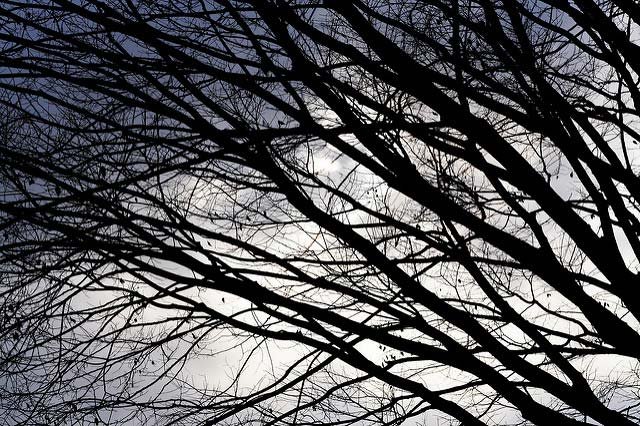
He emerged from the bushes clutching a bottle of wine, his face whipped red by the wind. They were huddled together in the clearing. Dry tufts of winter grass poked through the ratty blanket on which they sat. He stood a distance away and searched for Markus, who, noticing him, slowly detached himself from the others and approached.
“Thanks for coming out, man.” Markus took the bottle of wine with trembling hands.
“Some day for a picnic.”
“Why did you come out of the bush just now? There’s a road right there.”
“I don’t know. I thought it was fitting. Very ‘Dr. Livingstone, I presume,’ you know?”
“Is that how you greet all your African friends?”
“Just the ones I like.”
He was introduced to the others. Coworkers or friends of Markus’s—East Africans, Arabs, Indians. He was the only white person, a token among this cohort. They were all men, save one. She introduced herself as Hasina. Her voice was breathy, cracked with cold. Her cheeks flushed mahogany under sharp, curving bones. He noted her as one would an interesting fact in a lecture, something to circle back upon for further consideration.
Someone handed him a paper cup full of wine. He collected a handful of chips, licking the grease off his numb fingers. The conversation was about a matter he could neither understand nor bring himself to care about. Hasina seemed equally uninterested. He watched her fiddle with her drink, slowly loosening and tightening her grip as the dark liquid sloshed within. They reintroduced themselves.
“How do you know Markus?” he asked.
“We went to high school together, in Kenya.”
“Ah. So you knew him in his prime?”
“Is he so much worse now?”
“Oh, not at all. He’s twice the man he was then. Literally.” She tried to hide her laughter as Markus turned toward them, eyebrow raised. “Nothing, nothing,” he muttered, waving his hand, and Markus looked away.
“Do you live in Kenya still?”
“No, I live in Vancouver now. I’m just visiting Markus for the weekend.”
“Vancouver. You should be used to the cold, then.” She had wrapped herself in a blanket, twisting it around her head like a shawl. Her eyes peered out at him from within.
“It’s not about what I’m used to. It’s what I was expecting.”
From across the field, dim figures approached through the gathering dusk. They proved to be men, two of them, wrapped in black blankets, shapeless as nuns. Faces that scanned to him as African—deep-set eyes, wide brows, patchy, bristly beards. They arrived like Bedouins stepping out of the desert, emissaries who had traveled some vast, impossible distance. They stopped and began to speak to Hasina in Swahili. He heard her say her own name, other things, things he would never know. Their blankets billowed behind them in the wind. He noted that her laughter had a different note to it when she was speaking to them. One of the men indicated him and said something in a low tone. Both laughed as she blushed and shook her head. He gazed up at these intruders, standing stark against the low grey sky, figures punched out of the clouds. They seemed to be insisting upon some point, returning to the same few words. He recognized from Hasina the universal language of polite, half-teasing refusal.
“Sorry, guys,” he interrupted. He was embarrassed by his own English, flat and flabby sounding. “We were kind of in the middle of a conversation when you got here.”
The men muttered apologies, staring like owls from the hollow of a tree, mouths set in rigid lines. He did not feel danger, not quite that. He and Hasina watched as the men made their way back across the field, a retreating mirage. One of them kicked a soccer ball ahead of him. Again and again he caught up and sent it on, a white flash amid the gloom.
“Sorry about that,” he said, turning back to Hasina. “I didn’t mean to be rude. It seemed like they were bothering you.”
She waved her hand. “It wasn’t bad. But thank you.”
“What were they saying? My Swahili is a little rusty.”
“They wanted me to go to a club with them later. An African club.”
“Friends of yours?”
She rolled her eyes. “They would like to be.”
“We should go. It could be fun.”
“I don’t think they would let you in.”
“Wow. In this day and age. And they say racism is dead.”
They continued to talk. The world around them, the doings of others, began to exist solely for their amusement, as background music for a film only they were watching. They drank more wine. He felt it congealing on the corners of his mouth. Someone called his name.
“You in for Frisbee? Warm up a little?”
“I’m in.”
They spread out across the field. The sky was close and thick, pressing down upon the earth. Night had not yet fallen. The others were far away, figments on the edge of his vision. The Frisbee a speck of vivid unnatural color, cutting soundlessly across the air. He threw perfect strikes, dove to catch with one hand, tumbled into the dirt. Cheers echoed out from pockets of shadow. He could sense Hasina’s stare, her eyes burning somewhere off in the darkness. He crouched with his hands on his knees, panting, face flushed, warmth crackling through his limbs.
They began to walk out of the park. He was careful not to speak to Hasina right away. Let her wait, start to miss him. He pretended to listen to Markus describe a problem he was having at work, all the while keeping track of her position within the group. They were headed toward someone’s house at the edge of the park. They came to the main road. Cars poured back into the world in a stream of red taillights. Everything seemed to hum, holding its breath in anticipation. Streetlights flickered on as they passed. Laughing and jostling each other, strangely giddy, they reached the last trees and glided across the street. He knew where they were headed before anyone told him. A small two-story Victorian, glowing from within, a building so bursting with light it seemed to be leaking out, dripping from the windows. Throw the door wide open, he thought, and they would be struck blind by the glare, disintegrate.
The inside was cozy but spare. Bare walls shone waxy in the light. Bottles of liquor glittered like coins at the bottom of a fountain. They sat in a circle on chairs, couches, pillows thrown on the floor, and continued to drink. The roommates of the man who lived there, he still wasn’t sure which of Markus’s friends it was, came out to introduce themselves, installing themselves on either side of Hasina as they continued their conversation. He listened with flagging interest, sipping his drink at a steady pace, interjecting a few remarks here and there, watching how Hasina reacted. Her smirk, not quite amusement, not quite rejection, inscrutable. Something coiled inside him, wound tight, clanking like chains. Everything looked like a commercial—conspicuous drinks, bright happy faces. Had real life always been like that, or had the commercials invented those nights of youth, the feeling of invincibility, of every possibility coming true?
“You know the Livingstone thing you said before?” Hasina’s tone was serious. She brought her head close to his and he shuddered. The coil wound tighter.
“Huh?”
“‘Dr. Livingstone, I presume?’”
“What about it?”
“The man who said that, Henry Morton Stanley, never actually said it.”
“Is that right?”
“He made it up. It must have sounded better than whatever he actually said.”
“‘Oh shit, what’s up?’”
“Something like that.” She smiled. Music was playing. They could feel the bass line through the couch. Shadows lengthened on the blue-black street. “He was a bad man. Stanley.”
“I don’t think I know anything about him.” Their thighs were touching on the upholstery. He bit back a smile. “Tell me more about bad men.”
“He was as bad to Africans as any other white man of his time, maybe even worse. He worked for slavers, mercenaries. He helped the King of Belgium establish the rubber industry in the Congo, which killed millions.”
“Not a nice guy, is what you’re saying.”

She stared at a spot on the wall. “The worst part is, he tried to come across as this enlightened champion of Africa. He adopted a son—a slave, really—and made a show of educating him, parading him around to high society dinners in London. The whole noble savage routine. He fed him things and recorded his reactions, like he was some science experiment.”
“Awful.”
“His name was Kalulu. Stanley said it meant baby antelope in a native language, but didn’t mean shit. It just sounded African.”
“What happened to him? Kalulu?”
Her face was stricken. Lamplight pooled on her cheeks. “He drowned on a trip back to Africa, canoeing over a waterfall. They named the waterfall after him. I’ve been there. It’s beautiful.”
“Was Stanley sad about it, at least?”
Elsewhere people were laughing. A drink was poured, spilled, poured again. “I don’t know,” she said at last. “I can’t understand the heart of such a man.” She regarded him. “But I doubt it.” She brushed her hair and blinked, artificially cheerful. “Did you see the downstairs?”
“No. I didn’t realize there was a downstairs.”
“Do you want to check it out?”
The staircase creaked as they descended, stumbling. She had to grip the wall for support. Below, a feeble bulb illuminated a small alcove and three doors. There was hardly room for the two of them to stand. He drew closer.
“Not much of a downstairs, is it?” She said nothing. He reached past her and tested the knob of the door directly ahead of them, which slid open. “Someone’s room,” she said, in observation or warning. They stepped inside. A tangle of covers were pulled hastily to one side of the bed. Crusted plates lay on a desk in the corner. He could sense her discomfort, close and weighty as another presence in the room. He found he was already extremely hard.
“We should go.” She smiled. Her voice was faint. Later, he would decide that it had been the smile which started it.
“What’s the rush?” He reached out and touched her shoulder, feeling her body tense through his fingertips. His other hand caressed the small of her back, waiting for a slackening, a laying down of defenses, that would never arrive. The flesh seemed to tear itself from his grasp. When he moved in to kiss her, her lips were drawn tight, her tongue rigid. She pulled away. “I like you, but not like this.” It was more breath than speech.
“Why not?”
“Not here.”
“Why?”
“I think we should go back—”
“Why?”
“With the others—”
“Why?” He repeated the syllable, steady as a drumbeat, drowning out her protests. He shut the door as she began to beat her fists senselessly against his chest.
“Relax.” He unhooked the straps of her dress. “It’s okay.” They sank onto the bed. “Do you want me to stop?” He pulled back, peered down at her. She stared and said nothing. Her clothes lay wrinkled on her body, askew on limbs fixed and solid as stone. Her eyes reflected some unknown source of light. He waited, listening to the beat of his heart, an awful sound like the pull of some vast drain.
It was over rather quickly. He would remember her breath curling up to him, thin and rancid, and burying his head in her shoulder to be free of it. Heaving on top of her like a dinghy on a stormy sea. Her silence throughout, the silence of the condemned. A hollowness in his crotch, a burning in his mouth.
When it was finished she lay motionless on her side. Her hair spread in waves across the pillow. He reached out and stroked his hand along her back. He tried not to think about why he felt a need to comfort her. She did not turn to look at him. “Are you okay? I wasn’t trying to hurt you.” His voice rang out, empty and colorless as the darkness.
Now her laughter was a kind he had not heard before, brittle, harsh, unmoored from any language. “Then what were you trying to do?”
“I thought—” He realized that there was nothing to say, no suitable combination of words. He stood and got dressed in silence. By then his eyes had adjusted to the absence of light, and he could discern her form on the bed, shriveled up, fetal.
“I’m sorry.”
There seemed to be no noise left in the world. He wondered whether the others had heard them.
“Will you…Do you think?”
He thought he saw her shake her head, but knew that it could have been anything. A silent sob, a stifled scream. Whatever it was, it was enough for now. He exhaled. “Do you want to go back up?”
“Leave.” She rolled over and looked at him for the first time since the act. “Please go.” Her face was death itself, something that had crossed over to the other side. In that moment he sensed the depth of what had passed between them. To comprehend it fully would have meant entering into a madness from which he knew he’d never return. It was as if he had passed over a bottomless chasm, tunnels without end, and felt, only briefly, the touch of the void. The door creaked shut behind him.
He came upstairs in a trance. A smoky scent hung in the air. Somewhere a pan sizzled. The men were gathered around the stove, speaking in their tongue. They stopped when he entered the room. If they knew anything, they didn’t show it. He had to act normally.
“Try some of this,” Markus said, breaking the silence. He beckoned him over with a long wooden spoon. “A proper meal, eh? Just like the motherland.”
He peered into the pan. A bubbling stew the color of pitch, chunks of meat clinging to shards of yellowing bones. It smelled heavenly. He nodded, muttered something. A plate was put before him, a fork. His head felt light, buzzing with stars. There was a distinctly drunken logic to the proceedings. Food inexplicably appearing, richly spiced, delicious. It seemed to go nowhere, fill nothing. It passed between his lips and fell into space.
“You don’t look so good, man.”
“I’m fine.”
“Maybe you should lie down?”
“I’m fine.” There was a gamey flavor to the meat. Lamb, maybe goat. Something old and slow and gone forever.
“And how is Hasina?”
He looked around for who had said it. One of Markus’s Indian friends whose name he forgot. Now, under his gaze, the man laughed nervously and looked away, sorry to have brought it up. “She’s fine, too.” The men grinned and made low suggestive noises, winking at each other.
All at once he was immensely tired, the sort of ravenous fatigue he felt he might never recover from. The fork slipped from his hand and clattered loudly against the plate. Their heads swiveled back to him, eyes wide with concern. He thought desperately of leaving, felt the desire roiling deep in his gut, but knew it would seem too suspicious. And then there was Hasina lying just several feet below them, sprawled out naked, lost to the world. Moldering in her grave, he thought, shuddering. That couldn’t be helped now. “I think I need to lie down. Can I crash here?” He was amazed that he could get the words out.
They gave him space as he lay down on the sofa. Markus kneeled so that their eyes were level. “It hit you all at once, eh?”
“Yes.” He burrowed into the cushion as if he could disappear inside. He could not make himself realize that it was possible that only a few hours of his former life remained, perhaps less. It was someone else’s life, someone else’s actions. Surely not his own.
“It does that sometimes.” Markus smoothed his hair with a warm, loving gesture that he was acutely aware of not deserving. Then the face was gone. A light somewhere went out. He listened to the shuffle of feet in the darkness.
He woke to the barest glimmer of light creeping in from behind the blinds. Early morning. A stiffness gripped his limbs. His skin was cold, the bones beneath frozen. The scent of perfumed meat still fogged his brain. The others were nowhere to be found.
He knew better than to waste time marveling over his luck. Fire arced through his joints as he stood and grabbed his shoes. He was tying the laces when he saw Hasina, and the shock of it made him lose his balance and stagger back down onto the couch. She was slumped in a chair opposite him, her body illuminated in the tentative sunlight. Her eyes were closed, her chest rose and fell in a gentle rhythm. Totally, mercifully at peace.
He could wake her, he thought. He could ask her what she had already told the others, what she would tell them now. He could apologize or beg forgiveness. He could simply listen. But instead he let her sleep. Better for her to forget, if such a thing was possible. Better for him to slip silently from her life, receding like a phantom memory, a bad dream at the break of day. As if I’m really doing this for her, he thought, on his way out the door.
The streets were empty. He walked the long blocks without a destination, choosing at random. Trees shivered as he passed, dawn shining through their leaves. Clouds dissolved in pockets of light. The wind thrummed softly in his ears. He had gone every minute of his life without noticing such things, and now they belonged to him alone. Turning a corner, he came upon a gaggle of children waiting outside a coffee shop, kicking the curb. He spied their mothers through the glass, chattering among themselves, paying no mind to anything. The children peered up at him cautiously, unsure of what he entailed for them. He didn’t know why he didn’t press on. His legs felt rooted to the spot.
A torrent of vomit, black and frothing, erupted from his throat and onto the pavement. The children jumped back and watched in silent fascination. They glanced rapidly back and forth between him and the muck emerging from him, as if they were trying to figure out whether the two could once again be made whole. The mess lay splattered like entrails against the dull grey sidewalk. There seemed to be some kind of truth to it, bubbling up from within. He sensed that the children would know what it meant. Tell me, he wanted to beg of them—what do you see, written there? The row of pale faces stared at the slowly expanding pool. A conclusion danced on their tongues. Taking notice of the scene, the mothers began to hurry out onto the street, their drinks still spilling steam into the air.


Share this post with your friends.

